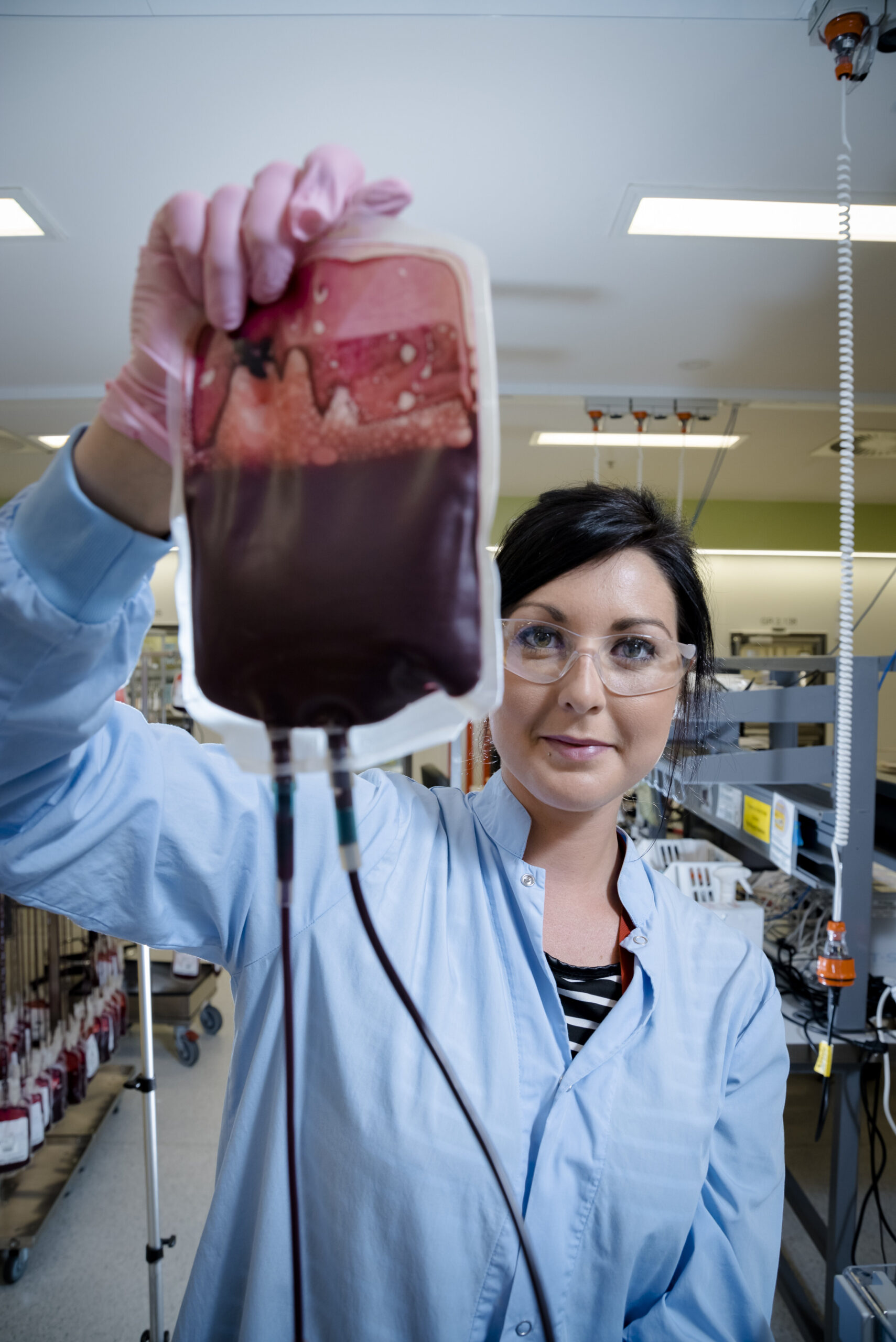
Donated Blood at Australian Red Cross Lifeblood. Credit: Australian Red Cross Lifeblood
The New Study Published in The Lancet Planetary Health Suggests A Changing Climate Threams The Continuous Availability of Safe Blood Across the World.
Researchers at the University of the Sunshine Coast and Australian Red Cross Lifeblood Say Health Issues, The Spread of Infectious Disease and Extreme Weather Excentrate by Climate Change Will Impact The Ablicity of People to Donate, and at the Same Time May trigger A Rise in the Need for Blood.
Lifeblood Researcher and Unisc Adjunct Research Fellow Dr. Elvina Viennet Said this Threatened The Safety and Supply of Life-Saving Blood Products for Surgeries, Trauma Care, Chronic Disease Management-Aand Saving Lives in Emergency situation.
“Warmer Temperatures and Natural Disasters Such As Heat Waves, Floods, Cyclones and Bushfires Are Expected to Become More Frequent and Sever,” Dr. Viennet Said.
“As well as Limiting the Mobility of Large Numbers of People, these events Disrupt the Storage, Safety, and Transportation of Blood, Which has a short shelf life.
“We Experienced This Recently with former Tropical Cyclone Alfred in Australia, When an Extreme Weather Event Drastically Reduced National Blood Supplies for the First Time.”
Lead Researcher, Unisc Association Professor Helen Faddy, Said the Study Was the First To Globally Examine How A Changing Climate Affect Each Stage of the Blood Supply Chain, Based On A Comparthensive Literature Review of International Studies.
“While Many Studies have explored the broader health effects of climate change, we have fill gaps in Understanding the Full Extent of the Risks – Offrus Obranor Health and Collection Logistics to the Processing, Storage and Distribution of Products,” She Said.
The Findings Suggest Climate Change May Impact Some Infectious Diseases That Can Be Transmitted via Blood and Can Prevent People from Donateting.
“For example, predictions of increeded rainfall and warmer temperatures in certain regions, including Australia, COULD intensify mosquito-borne dissees such as dengue fever, west nile virus and malaria, and potentially See them spread to new areas,” Dr. Faddy Said.

Bags of Blood Emergency Blood Type. Credit: Australian Red Cross Lifeblood

Mozzie Sucking Blood. Credit: Australian Red Cross Lifeblood
“At the Same Time, Shifts in Disease Prevalence and Natural Disaster Frequency Could Increase the demand for Blood Transfusions Due to Conditions Such As Pregnancy Complications, Cardiovascular Disease and Sickle Cell Disease.
“We Could Also Face Greater Difficulty in Finding the Right Blood for Patients. With Rising Sea Levels Increasing Migration Rates, It’s Essential to Have More Owners From A Variety of Ethnic Backgrounds, and to Increase the Number of People Who Give Blood.”
Less Obvious Health Conditions and Heat-Relanted Illness Could Also Impact Owners, Staff, and Volunteers.
“We Could See New Diseases emerges, Health Issues Such As Blood Pressure and Hydration That Are Excentrate by Heat, as wells As Psychological Distress and ‘Climate Anxiety’, Impact Owners,” She Said.

FIRES. Credit: Red Cross Lifeblood

Flooding due to Climate Change. Credit: Australian Red Cross Lifeblood
The Study Emphasizes The Need to Reduce Reliance on Traditional Blood Supply Chains and Have Adaptable Strategies That Offer Rapid Responses To ClimaTe-Relanted Challenges.
The Researchers Recommend Governments and Blood Services can prepare with critical Tools Such as Early Warning Systems, Disease Surveillance, Flexible Approaches to Overdusting and Blood Transport in Emergencies, Preparation Hospital, and Expanding Collection Services So Donations can be Relocated Quickly.
“RECENT GLOBAL INNOVATIONS Cell Salvage Techniques During Surgery, The Use of Drones to Transport Blood when Transit is Disruptd, and Walking Blood Banks, Which Collect Donations at the Site of Crisis,” Dr. Faddy Said.
“The Our Environment Evolves, We Need to Reduce Ruence on Traditional Blood Supply Chains and Have Adaptable Strategies That Offer Rapid Responses to Climate-Related Challenges.”
More information:
Blood Under Pressure: How Climate Change Threams Blood Safety and Supply Chains, The Lancet Planetary Health (2025). www.thelancet.com/journals/lan… (25) 00051-8/Fulltext
Provided by Australian Red Cross Lifeblood
Citation: Changing Climate May Jeopardize Global Blood Supply (2025, April 16) Retrieved 16 April 2025 from
This document is Subject to Copyright. Apart from Any Fair Dealing for the Purpose of Private Study or Research at Part May Be Reproduced Without The Written Permission. The Content is Provided for Information Purposes Only.






